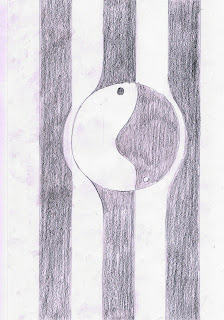My top "culture" of drawings
.
Culture Of Dance
A cultural dance is a dance from a specific country or culture, often
passed down through generations. They are usually performed happily and
with pride. Some examples are: Highlander dancing (Scotland), Ukrainian
dancing (Ukraine), or the dancing performed at a Powwow (Aboriginal).
Culture Of "Xi" in Chinese
In Chinese culture, two magpies facing each other symbolize "double happiness". A pair of magpies also symbolize marriage.
Culture Of "Yin and Yang" in Chinese
In Chinese culture, Yin and Yang represent the two opposite
principles in nature. Yin characterizes the feminine or negative nature of
things and yang stands for the masculine or positive side. Yin and yang are in
pairs, such as the moon and the sun, female and male, dark and bright, cold and
hot, passive and active, etc. But yin and yang are not static or just two
separated things. The nature of yinyang lies in interchange and interplay of
the two components. The alternation of day and night is such an example.
Culture of "Fu" in Chinese
The Chinese character “fu” means good
fortune and happiness, and during Spring Festival virtually every family would
paste it upside down on their doors in the hope that the word could bring
blessings to their families. As to why “fu” should be placed upside down there
are three interpretations.
Culture Of "Dragon" in Chinese
The Dragon is
a mythical creature that can fly and walk. Dragon can change its form and has
divine powers to summon wind and rain. Chinese people called their country “the
land of dragon” and themselves "the descendants of dragon”. The dragon is
the soul of Chinese Nation.
Culture of Ketupat in Javanese
In Javanese culture, ketupat means four human desires: anger, hunger, desire to possess something good and desire to force ourselves.







